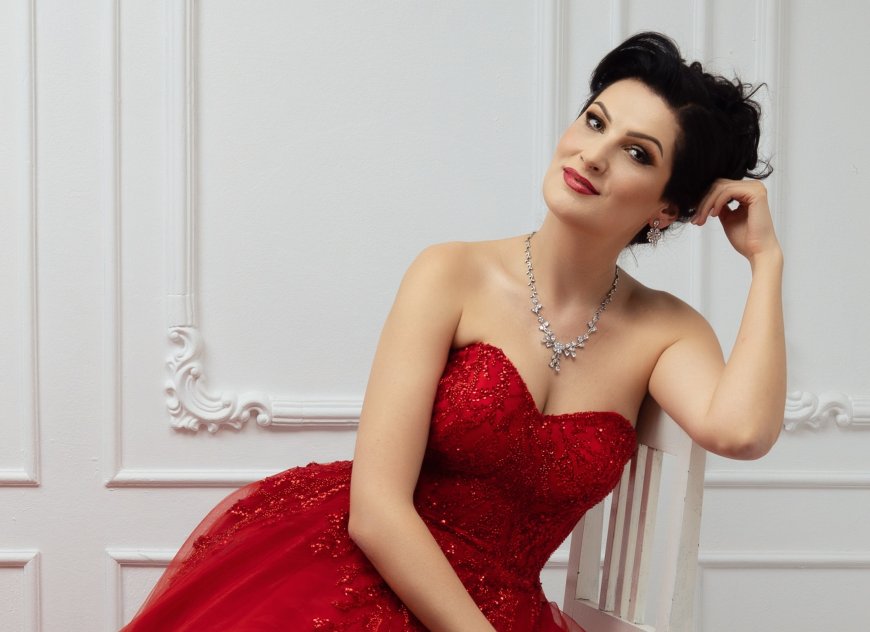
Fast-rising Romanian soprano Adela Zaharia will return to San Francisco Opera as the naive and lovestruck Gilda in Giuseppe Verdi's perennial audience favorite Rigoletto. The season-opening production is set to run for eight performances at the War Memorial Opera House from Sept. 5–27.
Zaharia made her SFO debut in 2022 as another besotted character, Donna Anna in Mozart’s Don Giovanni. She also participated as a featured soloist in the company’s 100th anniversary celebration concert in 2023.
Gilda ranks among Zaharia’s favorite roles. In fact, she made her operatic debut as Gilda at the Romanian National Opera in 2010 and her North American debut as Gilda at Los Angeles Opera in 2018. OperaWire praised Zaharia’s 2018 portrayal as a different kind of Gilda, with “a darker and more interesting timbre than most coloratura singers.”
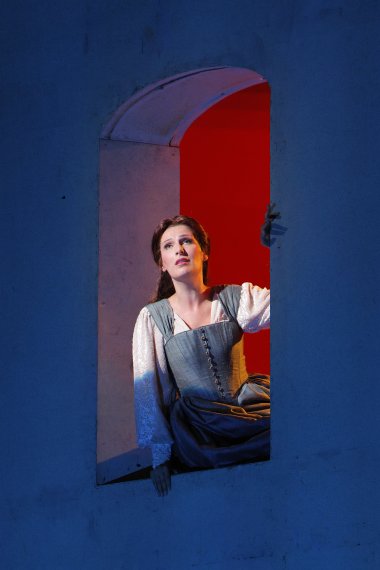
Now based in Munich, Zaharia moved to Germany in 2012 to sing with Berlin's Komische Opera. In 2015, she became an ensemble member at the Deutsche Oper am Rhein in Dusseldorf. Zaharia's career soared when she won first prize in the prestigious Placido Domingo Operalia Competition in 2017.
This season’s Rigoletto is a revival of SF Opera’s 1997-1998 production, and features designs by Michael Yeargan that were inspired by the surrealist paintings of Italian artist Giorgio de Chirico. Zaharia joins an international cast for the production, including Mongolian baritone Amartuvshin Enkhbat as Rigoletto and Chinese tenor Yongzhao Yu as The Duke of Mantua in his company debut. Jose Maria Condemi, from Argentina, directs and SF Opera’s music director Eun Sun Kim, from Korea, conducts.
SF Classical Voice recently spoke with Adela Zaharia during a rare break from her demanding rehearsal schedule. The conversation touched upon her Romanian heritage, her feelings about the character of Gilda, and her life as an international diva in high demand.
What was it like growing up in Romania? What was your path to becoming an opera singer there?
I was not originally meant to be a singer. My family was typically middle-class and had no connection to music until my older sister started taking music lessons. Romania had specialized music schools where you took extra courses in performance, theory and musicology. I went to one of those from age seven.
In my last year of high school, I was encouraged to take part in a national opera competition and won. People saw in me something I didn’t. So I decided to give singing a go. It took a long time for me to believe in it myself.
I was also very fortunate to be born two years before the 1989 Revolution in Romania that brought down the Communist regime. So I did not experience all the limitations placed on singers under Communism, when they could not travel freely abroad to accept engagements.
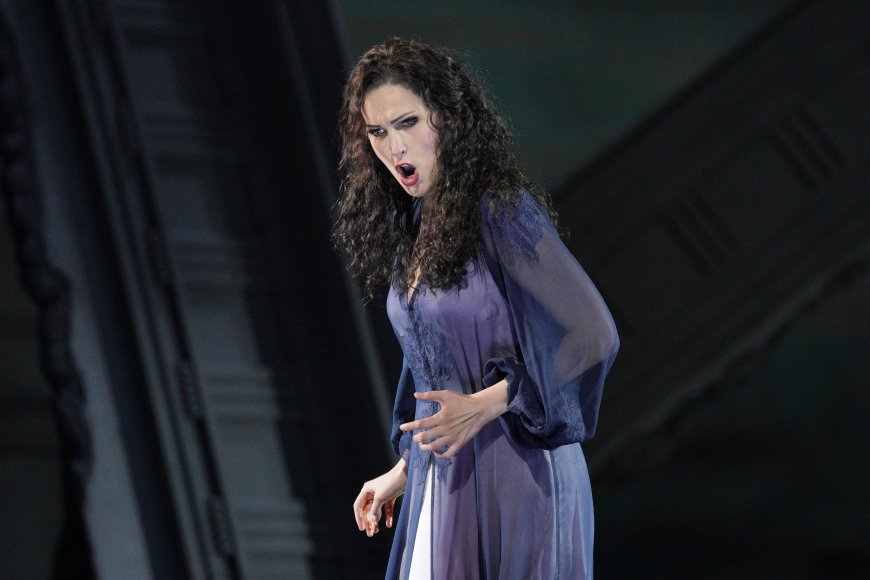
What is special about the Romanian tradition of opera?
Romania is on the frontier between East and the West. Its culture is a special mix of influences, including from the Balkans. I grew up in western Romania, quite different from other parts of the country, and always felt drawn to the West.
Many wonderful opera singers have come from Romania — Ileana Cotrubas, Mariana Nicolesco, Angela Gheorghiou. I think a lot of their success has to do with our language, a Latin language also influenced by Slavic languages. This gives the sound of the voice a unique position that combines the roundness of Slavic with a certain Italianità.
What is special to you about the role of Gilda?
This is my fourth time singing Gilda. I like it when stage directors see her as more than a victim. She is so curious about the world, so eager, so thirsty to know more beyond her sheltered life. And I like to see her as rebellious — she does know what she is doing, she agrees to meet the young man she sees in church, the Duke in disguise, which leads to her tragedy.
Her father Rigoletto thinks he can protect her forever, but becomes almost psychotic in shielding her. I like to bring more layers to Gilda's character and psychology, empowering her. She takes the decision to sacrifice herself at the end, taking control.
Why is Rigoletto so popular with audiences?
Because of the tunes like my aria “Caro nome” and the Duke's “La dona è mobile!” Verdi had to hide them before the premiere because he knew they would become such big hits.
The father-daughter story is so relatable. Like all operas, Rigoletto deals with love, desire, sacrifice, pain and drama. And social issues: misogynism, poverty, the class divide. What is not relevant about that to all of us today? We have not changed that much.
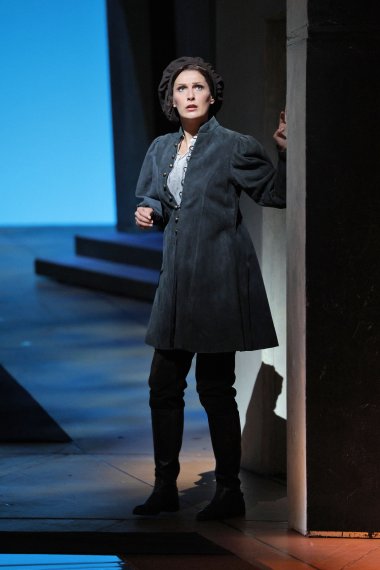
How do you handle the final scene when Gilda is dying from stab wounds but has to sing a long aria?
I am a little bit of an expert in dying characters. In almost everything I sing — [Verdi’s] La Traviata, [Gaetano Donizetti’s] Lucia di Lammermoor and Maria Stuarda — the characters do not finish well. This scene is very important to me. If people don’t leave with tears in their eyes, and not having felt they have experienced something powerful and impressive, then I am not happy with myself.
It is about finding the right balance between physicality, still producing the sounds and coating it with vulnerability. Finding something that looks realistic but keeping it technically functioning. A little part of the character dies with me every time I do this scene.
How do you prepare on the day of a performance?
I am a big fan of rest. I need to sleep as much as possible. I need to be mindful of what I eat, so it does not provoke acid reflex but still keeps me going through the evening. I like to remain mostly silent. I enjoy the time in the makeup chair just before the performance, that is the quiet time when I become the character. Every performance is an explosion of energy and adrenaline, so I need to reserve my energies.
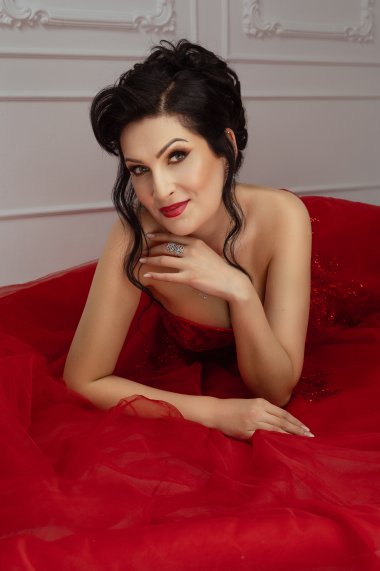
How about after the performance?
The adrenaline doesn’t go away right away. It throws my schedule off. After a performance I don’t go to sleep until four and wake up at noon. But then I also have to be ready for rehearsals that begin at 8 in the morning. That is my crazy lifestyle!
What are your upcoming engagements?
I have many role debuts in the near future. In November I will be making my debut at the Vienna State Opera in two different operas, as Donna Anna in Don Giovanni and Lucia in Lucia di Lammermoor. In the spring I will appear in Rossini’s rarely performed Semiramide at the Gran Teatre dell Liceu in Barcelona. I’m moving towards the heavier Bel Canto and also adding Verdi roles in the upcoming years.
How do you like San Francisco?
This is my fourth visit. I was also here last year when my partner, [tenor Amitai Pati], sang the role of Tamino in The Magic Flute. I love the views of the waterfront and the bay from up high.
The opera administration has shown a lot of care and made me feel very welcome. We are already discussing some future plans. I also look forward to singing a few numbers in the Opera in the Park concert in Golden Gate Park on Sep. 7 and seeing the big crowds come out for opera.




